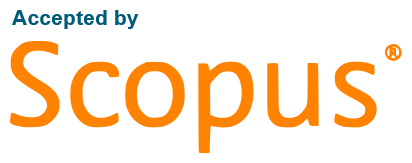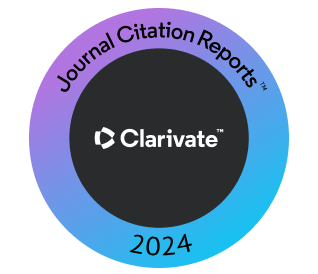Using Multilingual Bidirectional Encoder Representations from Transformers on Medical Corpus for Kurdish Text Classification
DOI:
https://doi.org/10.14500/aro.11088Keywords:
Bidirectional Encoder Representations from Transformers, Deep learning, Machine learning, Natural language processing, Sentiment analysis, TransformersAbstract
Technology has dominated a huge part of human life. Furthermore, technology users use language continuously to express feelings and sentiments about things. The science behind identifying human attitudes toward a particular product, service,or topic is one of the most active fields of research, and it is called sentiment analysis. While the English language is making real progress in sentiment analysis daily, other less-resourced languages, such as Kurdish, still suffer from fundamental issues and challenges in Natural Language Processing (NLP). This paper experimentswith the recently published medical corpus using the classical machine learning method and the latest deep learning tool in NLP and Bidirectional Encoder Representations from Transformers (BERT). We evaluated the findings of both machine learning and deep learning. The outcome indicates that BERT outperforms all the machine learning classifiers by scoring (92%) in accuracy, which is by two points higher than machine learning classifiers.
Downloads
References
Abdulla, S. and Hama, M. H., 2015. Sentiment analyses for kurdish social network texts using naive bayes classifier. Journal of University of Human Development, 1(4), pp. 393-397.
Ahmadi, S., 2020. KLPT-Kurdish Language Processing Toolkit., In: Proceedings of Second Workshop for NLP Open Source Software (NLP-OSS), pp. 72-84.
Cieliebak, M., Deriu, J.M., Egger, D. and Uzdilli, F., 2017. A Twitter Corpus and Benchmark Resources for German Sentiment Analysis. In: Proceedings of the Fifth International Workshop on Natural Language Processing for Social Medias. pp. 45-51.
Collobert, R., Weston, J., Bottu, L., Karlen, M., Kavukcuoglu, K. and Kuksa, P., 2011. Natural language processing (almost) from scratch. Journal of Machine Learning Research, 12, pp. 2493-2537.
Devlin, J., Chang, M.W., Lee, K. and Toutanova, K., 2018. BERT: Pre-training of deep bidirectional transformers for language understanding. Available from: http://arxiv.org/abs/1810.04805
Esmaili, K., 2012. Challenges in Kurdish text processing. arXiv preprint arXiv:1212.0074.
Farahani, M., Gharachorloo, M., Farahani, M. and Manthouri, M., 2021. Parsbert: Transformer-based model for persian language understanding. Neural Processing Letters, 53(6), pp. 3831-3847.
Hoang, M., Bihorac, O.A. and Rouces, J., 2019. Aspect-Based Sentiment Analysis Using Bert. In: Proceedings of the 22nd Nordic Conference on Computational Linguistics. pp. 187-196.
LeCun, Y., Bengio, Y. and Hinton, G., 2015. Deep learning. Nature, 521(7553), pp. 436-444.
Ling, J., 2020. Coronavirus Public Sentiment Analysis with BERT Deep Learning. Dalarna University, Sweden.
Mikolov, T., Sutskever, I., Chen, K., Corrado, G. and Dean, J. 2013. Distributed representations of words and phrases and their compositionality. In: Proc. Advances in Neural Information Processing Systems. 26, pp.3111–3119.
Pennington, J., Socher, R. and Manning, C., 2014. Glove: Global vectors for word representation. In: Proceedings of the 2014 Conference on Empirical Methods in Natural Language Processing (EMNLP), pp. 1532-1543.
Saeed, A.M., Hussein, S. R., Ali, C.M. and Rashid, T. A., 2022. Medical dataset classification for Kurdish short text over social media. Data Brief, 42, p.108089.
Vaswani, A., Shazeer, N., Parmar, N., Uszkoreit, J., Jones, L, Gomez, A.N., Kaiser, L. and Polosukhin, I., 2017. Attention is all you need. In: Advances in Neural Information Processing Systems, Vol. 30. NeurIPS Proceedings.
Zahera, H. M. Elgendy, I., Jalota, R. and Sherif, M.A., 2019. Fine-tuned BERT Model for Multi-Label Tweets Classification. The Real Estate Company, Mumbai. pp. 1-7.
Downloads
Published
How to Cite
Issue
Section
License
Authors who choose to publish their work with Aro agree to the following terms:
-
Authors retain the copyright to their work and grant the journal the right of first publication. The work is simultaneously licensed under a Creative Commons Attribution License [CC BY-NC-SA 4.0]. This license allows others to share the work with an acknowledgement of the work's authorship and initial publication in this journal.
-
Authors have the freedom to enter into separate agreements for the non-exclusive distribution of the journal's published version of the work. This includes options such as posting it to an institutional repository or publishing it in a book, as long as proper acknowledgement is given to its initial publication in this journal.
-
Authors are encouraged to share and post their work online, including in institutional repositories or on their personal websites, both prior to and during the submission process. This practice can lead to productive exchanges and increase the visibility and citation of the published work.
By agreeing to these terms, authors acknowledge the importance of open access and the benefits it brings to the scholarly community.
Accepted 2022-12-29
Published 2023-01-15
















 ARO Journal is a scientific, peer-reviewed, periodical, and diamond OAJ that has no APC or ASC.
ARO Journal is a scientific, peer-reviewed, periodical, and diamond OAJ that has no APC or ASC.